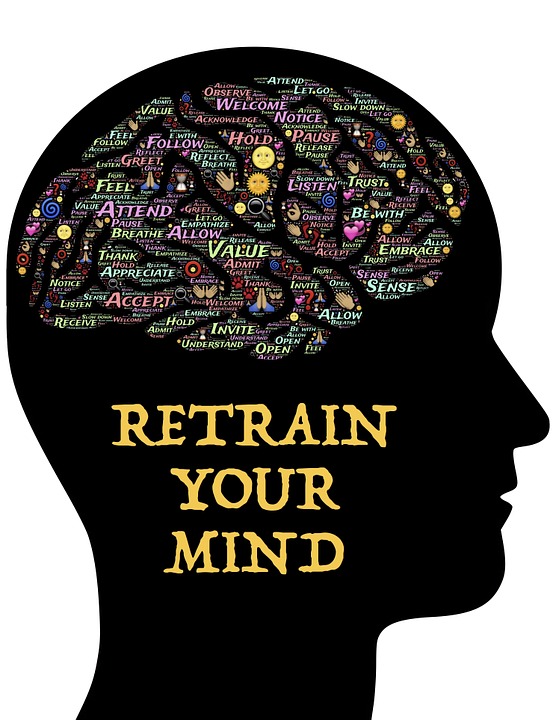 Most people identify themselves as a “glass half full” kind of person. We don’t intentionally set out to wreck our moods or think ourselves into unhappiness… do we? However, we can feel like tumbleweeds in the wind, our moods – which can create stress — may quickly shift from the impact of a difficult work environment, a nagging spouse, or even something as seemingly benign as the weather. And all these mood stressors impact us on a physical level too – by increasing the body’s production of a stress hormone called cortisol.
Most people identify themselves as a “glass half full” kind of person. We don’t intentionally set out to wreck our moods or think ourselves into unhappiness… do we? However, we can feel like tumbleweeds in the wind, our moods – which can create stress — may quickly shift from the impact of a difficult work environment, a nagging spouse, or even something as seemingly benign as the weather. And all these mood stressors impact us on a physical level too – by increasing the body’s production of a stress hormone called cortisol.
Cortisol initiates a vicious cycle of food versus mood, wherein we crave sugary, carb-laden foods and shun healthier alternatives like fish and vegetables. Of course, eating all this garbage makes us feel more depressed and more negative, which floods the body with more cortisol. But the good news is that you can break the cycle – and it all starts with something as simple as a thought.
As it turns out, the more frequently you have negative thoughts, the more depressed you feel [1]. Conversely, the happier you feel, the more your health and your mood improves. Classes in understanding happiness have even sprung up on college campuses. Tal Ben-Shahar, Ph.D., an associate of the Harvard Psychology Department teaches the single most popular course on campus – a course about how our levels of happiness and unhappiness are rooted in our thoughts, deeds and words.[2]
But can we really learn to be happy? A new school of thought put forward by psychologist Martin Seligman, former president of the American Psychology Association believes that we can all be happier by recognizing how our thoughts and words contribute to our moods. The good news is that you can start feeling better today by following a few proven steps that boost your body’s natural “happiness chemicals”.
According to an article by the Cleveland Clinic,[3] you can quell a bad mood almost instantly by:
- Holding hands or hugging – A 20-second hug with your spouse releases the feel-good brain chemical oxytocin, which in turn helps you relax and feel calmer.
- Get social – Resist the urge to hibernate in your home alone and grab a pal (or two, or three) for an evening out. When women are emotionally close to their friends, the hormone progesterone is increased, which subdues anxiety and reduces stress. Men get the same benefits whether they’re with their buddies or with women.
- Enjoy more of nature – The fresh air, the trees, the crisp leaves under your feet, the warmth of the sun on your face… getting out into nature revitalizes your body and mind while clearing out the cobwebs of too much time spent indoors.
- Laugh out loud – Rent a comedy movie or listen to your favorite comedian. Boisterous laughter releases endorphins which help you feel happier and more at ease.
Feeling happier is not a matter of willing your body to do so. Your brain is smarter than you think, and no amount of telling yourself “I am happy…I am happy” is going to change your mood. Instead, combine your affirmative statement with a reason – such as:
- Today I am going to feel happy BECAUSE…(I’ll finish that big project at work / I’m grateful for my family / I’m taking better care of my health, etc.)
Back to the cortisol culprit – how do you slam the breaks on a seemingly never-ending cycle of cravings that can disrupt your mood? Follow these tips, from the Food and Mood connection by the Mayo Clinic [4]
- Keep your blood sugar levels even throughout the day by consuming more whole grains, fruits, and leafy green vegetables
- Avoid alcohol as it can interfere with your body’s natural ability to get a good night’s sleep
- Eliminate caffeine as you’re likely to experience a “crash” later when your blood sugar takes a nose-dive
- Consider eating 5-6 smaller meals per day rather than 3 large ones as this also contributes to better blood sugar levels.
Overall, you can learn to improve your mood and well-being by taking these simple steps. Try it out and let me know your results in the comments below!
For more whole health discussions, listen to Dr. Georgianna Donadio’s radio show Living Above The Drama.
Sources:
[1] The Effects of Reducing Frequency of Negative Thoughts on the Mood of Depressed Patients
http://www.ncbi.nlm.nih.gov/pubmed/620107
[2] Tal Ben-Sharar: The Secret to Happiness:
http://harvardmagazine.com/2007/01/the-science-of-happiness.html
[3] The Cleveland Clinic: Mood Boosters: Think Happy Thoughts to Boost Your Mood
http://www.clevelandclinicwellness.com/mind/moodboosters/Pages/ThinkHappyThoughtstoBoostYourMood.aspx
[4] The Food and Mood Connection: http://www.mayoclinic.com/health/food-and-mood/my00716

